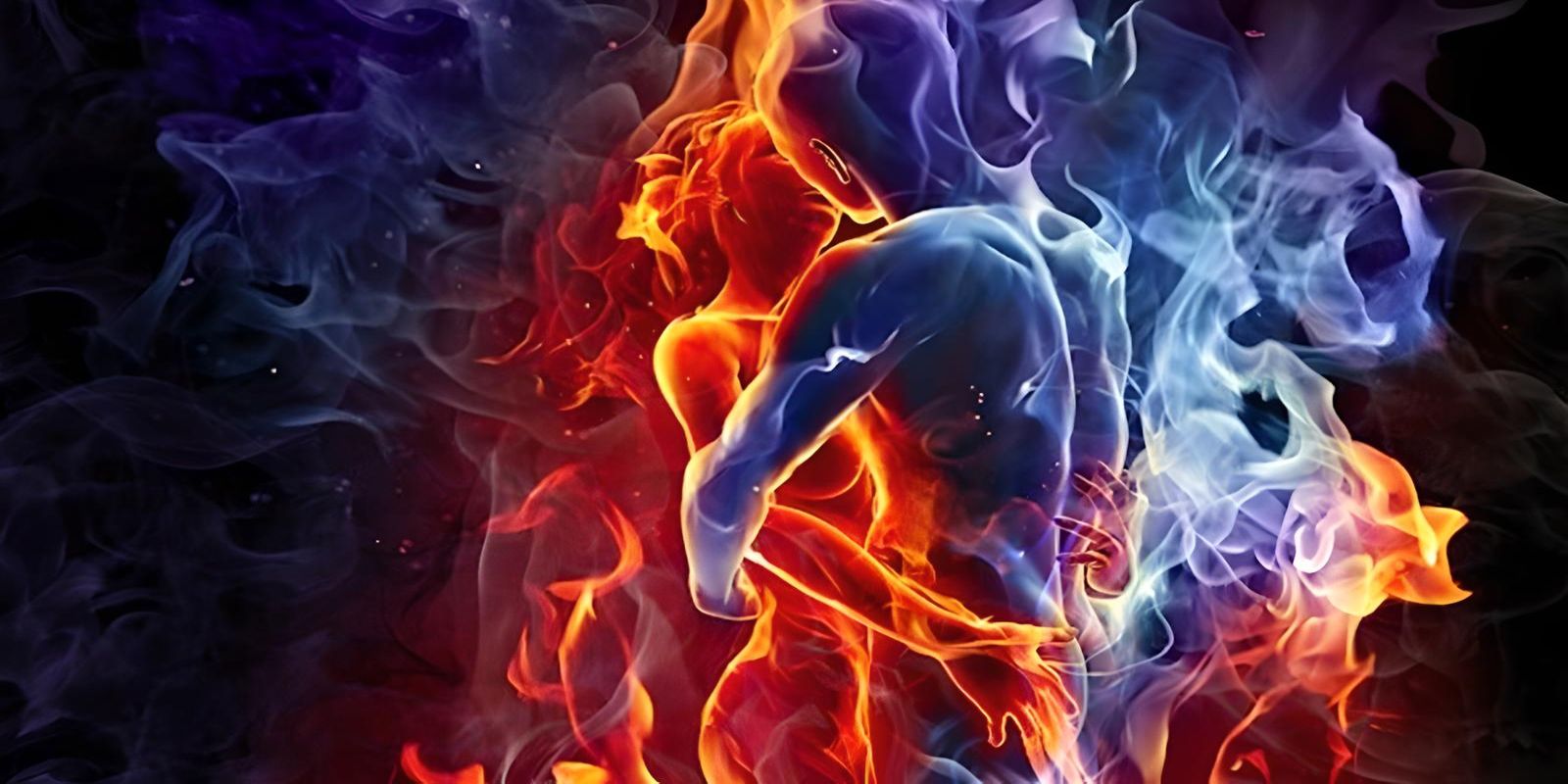Unlocking the Power of Taoism and Sexual Energy
Taoism pays special attention to sexual energy, seeing it as a vital force that influences overall well-being. In Taoism and sexual energy practices, erotic experiences are more than physical pleasure; they become a path to spiritual growth and longevity. Ancient Taoists believed that sexual energy, or “jing,” is one of the body’s most powerful life forces. When harnessed correctly, it can improve health, enhance vitality, and deepen connections between partners. Unlike many traditions that view sexuality with restraint, Taoism encourages balance and mindful cultivation of this energy.
Understanding Taoist sexual energy practices can offer a new perspective on intimacy, self-awareness, and personal growth. These teachings focus on preserving and transforming sexual energy rather than wasting it. Through breath control, movement, and intentional connection, Taoists aim to circulate this energy throughout the body, nourishing both mind and spirit. Whether you seek to strengthen your relationships, improve your health, or explore deeper levels of consciousness, Taoist practices provide a holistic approach. This guide will introduce the essential principles, helping you discover how to integrate Taoist wisdom into your own life.
Harnessing Sexual Energy as a Positive Life Force
Sexuality, as we perceive it today, is a modern construct shaped by cultural and societal influences. In contrast, Taoist philosophy sees sexual energy as an innate life force, not inherently erotic but a source of vitality, healing, and balance. It is an energy that every individual possesses, capable of being cultivated and directed for personal transformation.
Taoism teaches that sexual energy has life-enhancing properties. Rather than viewing intimacy as mere physical gratification, Taoist practices focus on maximizing and refining this energy. By doing so, individuals can promote longevity, mental clarity, and emotional harmony. The idea is that this life force, when properly harnessed, circulates throughout the body, nourishing organs, strengthening the immune system, and deepening one’s spiritual connection.
When two people engage in sexual intimacy, they exchange and merge their energies, influencing each other’s physical and emotional well-being. Taoists believe this exchange can enhance vitality and create a deeper bond between partners. Traditionally, men were encouraged to cultivate and preserve their sexual energy through multiple partnerships, aiming to absorb and balance their life force. However, modern interpretations emphasize mutual energy exchange rather than one-sided accumulation, promoting harmony between partners. Taoism highlights the importance of mindful connection, where both individuals benefit from the transformative power of shared energy.
The Power of Retaining Sexual Energy – Taoism and Sexual Energy
You may already have an intuitive understanding of how energy flows within the body. Taoism takes this a step further, emphasizing the importance of conserving sexual energy, particularly for men. According to Taoist teachings, frequent ejaculation depletes vital life force, leading to fatigue, aging, and diminished vitality. In contrast, women’s orgasms are not believed to cause the same energy loss, allowing them to experience pleasure without a reduction in life force.
Semen retention is a core Taoist practice designed to preserve and refine sexual energy. Ancient texts outline specific guidelines for when and how a man should ejaculate, suggesting that frequent release weakens the body over time. Many Taoist scholars linked energy loss and recovery to age, explaining why younger men could engage in frequent sexual activity while older men required longer recovery periods. The belief is that by minimizing ejaculation, men can cultivate internal strength, enhance longevity, and deepen their spiritual awareness.
While modern science does not fully support semen retention as an energy-saving technique, its benefits are noticeable. Sex without ejaculation allows for extended pleasure, greater stamina, and improved control over climax. By delaying release, men can experience more intense orgasms and a deeper connection with their partner. Practicing semen retention is fairly simple, with techniques like edging and using masturbation toys like the ones found at HotCherry helping to improve control and enhance results. Over time, this practice can lead to heightened sexual fulfillment and a stronger overall sense of well-being.
Mastering the Art of Injaculation
Taoist sexual practices go beyond conventional understandings of intimacy, offering a unique perspective on male orgasm and energy retention. Unlike Western views that equate orgasm with ejaculation, Taoist teachings separate the two, asserting that ejaculation is a physical release while orgasm exists on an entirely different energetic plane. By mastering this distinction, men can experience deep pleasure without losing vital life force.
One of the most fascinating techniques described in Taoist literature is injaculation, a practice that redirects seminal fluid inward rather than expelling it from the body. Instead of releasing sperm externally, the energy of ejaculation is drawn back toward the prostate, where it is believed to be reabsorbed and circulated throughout the body. This technique allows men to experience orgasmic pleasure without losing essential sexual energy, aligning with the Taoist goal of preserving jing, the body’s fundamental life essence.
Practitioners of injaculation claim that by refining this skill, men can achieve more intense and prolonged orgasms. Taoist texts suggest that those who master injaculation not only extend their sexual stamina but also enhance their overall well-being. Through breathing exercises, muscle control, and focused intention, men can tap into heightened states of pleasure while maintaining peak vitality. This approach transforms sex into a meditative, energy-sustaining experience rather than a momentary release of pleasure.
The 10 Essential Signs of Female Pleasure in Taoism
At first glance, Taoist sexual practices may seem male-focused, but this is far from the truth. Many Taoist scholars emphasized female pleasure, recognizing its vital role in the energetic exchange between partners. Unlike men, women were believed to retain their sexual energy after intimacy, making them powerful sources of jing, the life essence that sustains health and longevity.
One of the most influential figures in ancient Chinese mythology, Sunu, an advisor to the Yellow Emperor, identified 10 key indications of female pleasure. According to Taoist philosophy, when a woman experiences deep satisfaction in these ways, she produces more jing, which can be absorbed by both partners during intercourse. This heightened energy exchange enhances physical vitality, mental clarity, and spiritual harmony.
Jing is a fundamental energetic substance in Taoism, closely tied to longevity. Once a person depletes their jing, death follows. Many Taoist texts suggest that sexual energy, when cultivated correctly, can regenerate and sustain jing, slowing down aging and promoting overall well-being. Because women naturally retain their energy reserves after sex, they were historically revered as gatekeepers of jing. Their ability to cultivate and share this essence made them central figures in Taoist sexual practices, influencing how men sought to refine and balance their own energy.

Taoist Sexuality: A Fine Balancing Act – Taoism and Sexual Energy
Taoist sexual practices emphasize harmony, balance, and mindful energy cultivation. While many techniques focus on enhancing female pleasure and helping men retain sexual energy, Taoist philosophy also warns against overstimulation. Too much stimulation of the sexual organs was believed to disrupt the body’s equilibrium, leading to disharmony and potential dysfunction. Because of this, Taoist sexual practices were not just about pleasure but about maintaining a delicate energetic balance between partners.
The Role of Reflexology in Taoist Sexuality
A core concept in Taoist sexual philosophy is reflexology of the sex organs, which suggests that every organ in the body is internally mapped. According to this belief, excessive stimulation of certain body parts such as the penis or clitoris can negatively impact internal bodily systems. Just as acupressure and acupuncture manipulate energy pathways to heal the body, sexual activity was thought to influence qi, the body’s vital energy flow. Because of this, Taoist teachings included prescriptions for sex positions, rhythm, breathing techniques, and methods for controlling arousal, all designed to ensure energy remained balanced.
Taoism’s Broader Perspective on Sexuality
While Taoism places great importance on sexual energy, it is not a sex-centric philosophy. Many modern interpretations overemphasize Taoist sexuality, often through a Westernized lens that focuses on eroticism rather than spiritual balance. In reality, classical Taoist texts cover a wide range of life practices, from diet and exercise to meditation and personal restraint. Sexual control was simply one aspect of a much larger framework aimed at achieving longevity, harmony, and spiritual enlightenment.
Some Taoist texts discuss the importance of retaining bodily fluids and energy, but this concept was not exclusive to sexuality. In traditional Chinese culture, moderation and self-restraint were valued in all aspects of life. Sexual energy was seen as just one of many life forces that needed to be carefully cultivated rather than indulged in excessively. Taoist practices were not meant to encourage hedonism but to provide a structured way to optimize energy, maintain health, and foster deeper connections between partners.
5 FAQ’s About Taoism And Sexual Energy
Taoist sexual practices focus on energy cultivation, balance, and longevity. While many aspects of these teachings may seem unfamiliar, they offer profound insights into intimacy and well-being. Below are five frequently asked questions that address deeper concerns about Taoist sexual energy, its practical applications, and its effects on relationships and health.
Can anyone practice Taoist sexual energy cultivation?
Yes, Taoist sexual practices are accessible to anyone, regardless of experience. Beginners can start with simple techniques like breath control and mindful intimacy. With time, they can explore advanced methods such as semen retention, injaculation, and energy circulation. The key is to approach these practices with patience and consistency.
Do women also need to practice energy retention like men?
Taoist philosophy suggests that women naturally retain their sexual energy since orgasm does not cause depletion. However, women can still enhance their energy through Taoist techniques like controlled breathing, jade egg exercises, and meditative practices. These methods help circulate energy, increasing vitality and promoting emotional and physical balance.
How do Taoist sexual practices benefit long-term relationships?
Taoism encourages a deeper connection between partners by focusing on mutual energy exchange rather than quick gratification. Couples who practice Taoist techniques, such as synchronized breathing and slow, intentional intimacy, often experience stronger emotional bonds. These practices help sustain passion, trust, and harmony over time.
Can Taoist sexual practices improve physical health?
Many Taoist texts suggest that cultivating sexual energy enhances overall health by strengthening the immune system and promoting better circulation. Practices like semen retention and reflexology-based stimulation are believed to nourish vital organs. While scientific research is limited, many practitioners report increased stamina, mental clarity, and overall well-being.
Is there scientific evidence supporting Taoist beliefs about sexual energy?
Western medicine does not directly recognize concepts like qi or jing, but some Taoist techniques align with scientific findings. Breath control, pelvic floor strengthening, and prolonged intimacy have known health benefits, such as improved cardiovascular function and stress reduction. While full scientific validation is lacking, many people find these practices beneficial for holistic wellness.


You must be logged in to post a comment.